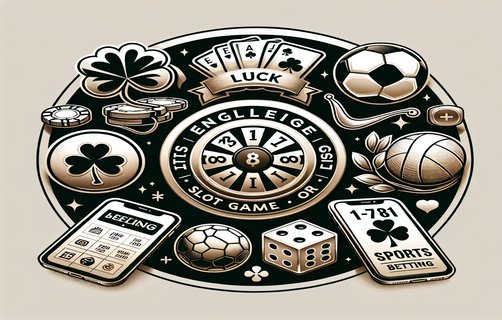Exploring the Ethics and Strategies of Casino Games
The world of gaming, particularly in casinos, is one that balances the thrill of chance with the strategies devised by players to increase their odds of success. In this discussion, we delve into various aspects of casino gaming, from table games to re-buy tournaments, highlighting not only the excitement they bring but also the moral implications surrounding them.
Table Games: At the heart of the casino experience lie the table games—blackjack, poker, and baccarat among them. These games present a unique blend of luck and skill. While the outcome is unpredictable, the strategies employed can significantly influence a player’s success. This duality raises questions: Is success solely the result of adept strategy, or does the luck of the draw play an equally significant role? Naturally, players seek to hone their skills through practice, yet one must consider the ethical dimensions of employing advanced strategies that may verge on manipulation of the game.
Re-buy Tournaments: Moving to the realm of poker, re-buy tournaments introduce a fascinating dynamic. In these tournaments, players can 're-load' their chips, allowing for a second chance after an initial loss. This format encourages risk-taking and can lead to stunning comebacks. However, from an ethical standpoint, one must ponder: Does the ability to re-buy undermine the integrity of the competition? Should success in gambling be solely based on initial skill and luck, or is it fair for players to have additional opportunities to recover from losses?

Fair RNG (Random Number Generator): A critical component in digital gaming, the Random Number Generator ensures outcomes are completely random, mirroring the unpredictability found in traditional casinos. The concept of fairness is pivotal. Players must trust that the games they participate in are not rigged. This trust is essential for a healthy gambling environment. When this trust is compromised, the moral fabric of the gaming landscape is threatened. Therefore, ensuring transparency and fairness in RNG algorithms should be viewed as not just a necessity for business, but a moral obligation to the players.

Teaser Betting and Roulette Strategies: Another exciting realm is teaser betting, where players can adjust point spreads, effectively increasing their chances of winning. Yet, one must ask if lowering the bar to enhance odds devalues the betting experience. Similarly, roulette strategies, such as betting on certain numbers or colors repeatedly, prompt players to manipulate odds through calculated risk. These strategies can be enticing but also carry ethical weight—where is the line between strategy and recklessness?
Reading Betting Patterns and Payline Selection: The art of reading betting patterns in games like baccarat or sports betting offers players insights into potential outcomes. Harnessing this skill can provide a competitive edge, defining the gamble as both an art and a science. Furthermore, in slot machines, understanding paylines can greatly affect outcomes. Still, this raises ethical considerations: should victory be based on pattern recognition, or should it remain a game of pure chance?
In conclusion, while engaging in the diverse ecosystem of casino gaming provides excitement and potential reward, it also necessitates a deep moral reflection on fairness, risk, and strategy. Participants must recognize their responsibilities not only to themselves but also to their fellow players and the integrity of the games they love.
